 Today Congressman Bobby Rush from Chicago got kicked off the House Floor for wearing a Hoodie. He like many others had dawned the attire to bring attention to the case surrounding Trayvon Martin. It was a noble gesture. It helps keep the case in the spotlight, but this has got to go beyond Hoodies. Too many of us are focusing on that and not some of the larger issues at hand.
Today Congressman Bobby Rush from Chicago got kicked off the House Floor for wearing a Hoodie. He like many others had dawned the attire to bring attention to the case surrounding Trayvon Martin. It was a noble gesture. It helps keep the case in the spotlight, but this has got to go beyond Hoodies. Too many of us are focusing on that and not some of the larger issues at hand.
For example, all of us should be asking; ‘whats the story behind Sanford Police Chief Bill Lee?’ Most of us protesting around Trayvon don’t know his name. All we know is the police chief stepped down and very few of us are bringing him up in conversation and demanding he be brought to task? He’s just as guilty as George Zimmerman.
Why was Chief Sanders and his department so sloppy with the initial investigation? Why didn’t they follow standard police procedure of collecting evidence like; keeping Zimmerman’s gun and running ballistic tests or checking to make sure Zimmerman wasn’t high or drunk? We need to know why Standford police didn’t notify Trayvon’s family for after he was killed and his body was in the morgue.. Martin’s father found out after he filed a missing person’s report. We are just finding out that one of the early investigators wanted to charge Zimmerman with manslaughter. Why wasn’t that allowed to happen?
We need to know what’s the deal with State Attorney Norman R. Wolfinger, why didn’t he press charges? We need to know if there’s a connection with George Zimmerman’s dad Robert Zimmerman a former magistrate and the lawmakers here in Florida?
All of us should be asking those questions and when we see a Congressman like Bobby Rush wearing a hoodie on the house floor, he is not only asking those questions but ideally if he’s being escorted off the floor it’s because he’s attempting to hold hearings where many of those questions can get answered.
http://www.youtube.com/watch?v=ougHdwR8PhI
We need to see Rush and other members of the Congressional Black Caucus hold more briefings and hearings like they did with yesterday’s Protecting a “Suspect” Community: Racial Profiling & Hate Crimes. We need to see hearings on police misconduct. We can start with the frequent leaks coming from the police departments designed to smear Trayvon’s name. In many states, including Florida, they have in place a Policeman’s Bill of Rights. In many places those Policeman’s Bill of Rights make it difficult to get a hold of personnel files to review complaints against an officer (I’m not sure if Florida has the same provisions as California where officers are shielded).
 In any case all of us need to continuously connect the dots.. Trayvon’s killing can’t be seen in isolation to last week’s brutal vigilante killing of Shaima Alawadi in Lakeside California or the ‘drive by’ shooting death of Rekia Boyd by an off duty Chicago cop who claims he saw a man standing next to Boyd draw gun. Boyd was an innocent bystander yet her shooting was deemed justified even though the police found no weapons on the scene.
In any case all of us need to continuously connect the dots.. Trayvon’s killing can’t be seen in isolation to last week’s brutal vigilante killing of Shaima Alawadi in Lakeside California or the ‘drive by’ shooting death of Rekia Boyd by an off duty Chicago cop who claims he saw a man standing next to Boyd draw gun. Boyd was an innocent bystander yet her shooting was deemed justified even though the police found no weapons on the scene.
These incidents and scores of others need to be investigated. We need to make sure that these incidents are not connected to a larger more sinister plan of action. Are we experiencing co-ordinated and deleibarte terrorist attacks or are people just angry and acting out? Hopefully Rush and the CBC can lead the charge on Capitol Hill and start to really dig into those questions while we start looking into this amongst ourselves in our communities.
Lastly, lets not get caught up in the hoodie thing as if Black people are only suspicious when wearing them.. Try driving a nice car and your suspicious… Try walking around a nice department store and your suspicious.. Try cashing a large check and your suspicious..
This suspiciousness is rooted in racist people holding on to the notion that Black people not being in ‘their place‘ when they do something that defies stereotypes. This is why we see the racial attacks on President Barack Obama who is constantly under suspicion..We already seen the disrespect directed to him by business mogul Donald Trump, who demanded to see the President’s birth certificate. Even after it was shown, we now have Arizona sheriff Joe Arpiao conducting an investigation to make sure it’s not fake..
Sadly we are suspicious of each other..Long after this Trayvon/ Zimmerman thing dies down, even if he’s arrested and convicted, many of us are still gonna be running around not trusting the Black repairman, the Black lawyer, the Black accountant.. Black men will claim they can’t trust ‘skeezing, gold digging sistas and sistas will say they can’t trust these ‘trifling scheming azz’ men..and nobody trusts the kids..How do we intend to change that?.
Not to digress too much… Again we must be clear and push forward with justice and the dismantling of institutionalized racism and oppression as a goal. Our hoodies have got to be connected larger political agenda or understanding. Are we wearing a hoodie to show solidarity? If so, who or what are we in solidarity with? Are we wearing the hoodies as an act of defiance? If so what exactly are we defying? All of us should learned the lesson of what happened after Obama got elected. His historic victory was quickly erased by this onslaught of racist killings all over the country. From Oscar Grant to Trayvon and beyond. If we’re not mindful of this, we will quickly find ourselves back at square one even if Zimmerman is carted off to jail for life or given a death sentence. Bottom line: What good is a symbol if its not connected to a larger politic and plan of action?
written by Davey D



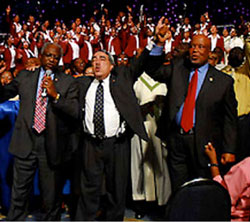
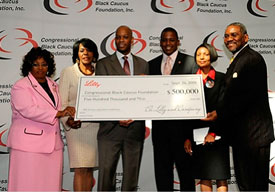
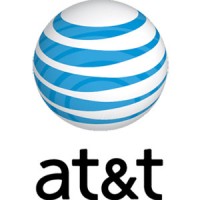



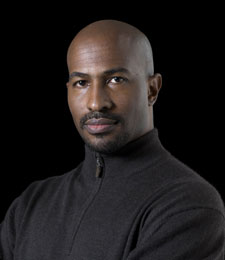

 The Supreme Court’s seismic January ruling that corporations are free to spend unlimited amounts of their profits to advertise for or against candidates may have been the latest shakeup of campaign finance – but gaping holes already allow corporations to spend enormous sums without leaving a paper trail, a Raw Story investigation has found.
The Supreme Court’s seismic January ruling that corporations are free to spend unlimited amounts of their profits to advertise for or against candidates may have been the latest shakeup of campaign finance – but gaping holes already allow corporations to spend enormous sums without leaving a paper trail, a Raw Story investigation has found.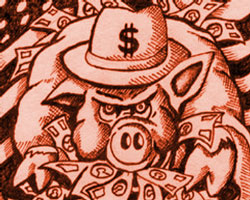

 Shame on former Black Panther, Congressman Bobby Rush for selling us out and supporting these corporations. Shame on the National Coalition on Black Civic Participation and any other Civil Rights group pretending to represent our interests while selling us out and taking the money to front for these groups. And while Im glad former Congressman Ron Dellums did well in his Mayoral bid in Oakland, we should not forget that hes also a lobbyist with one of his main clients being Verizon so shame on him as well. How’s Oakland gonna be a world class city that is a beacon for new technology and innovation when his client is one of the main people trying to shut down the Internet?
Shame on former Black Panther, Congressman Bobby Rush for selling us out and supporting these corporations. Shame on the National Coalition on Black Civic Participation and any other Civil Rights group pretending to represent our interests while selling us out and taking the money to front for these groups. And while Im glad former Congressman Ron Dellums did well in his Mayoral bid in Oakland, we should not forget that hes also a lobbyist with one of his main clients being Verizon so shame on him as well. How’s Oakland gonna be a world class city that is a beacon for new technology and innovation when his client is one of the main people trying to shut down the Internet?